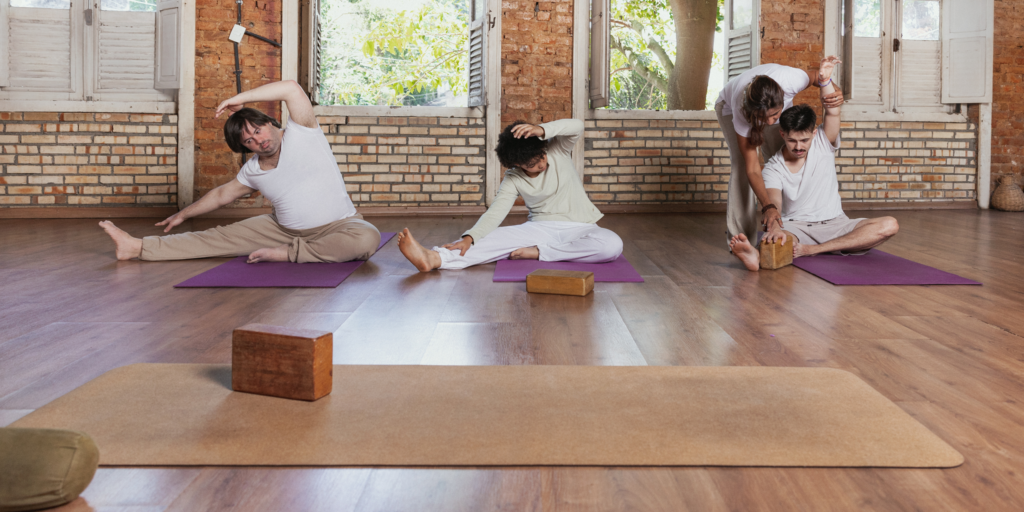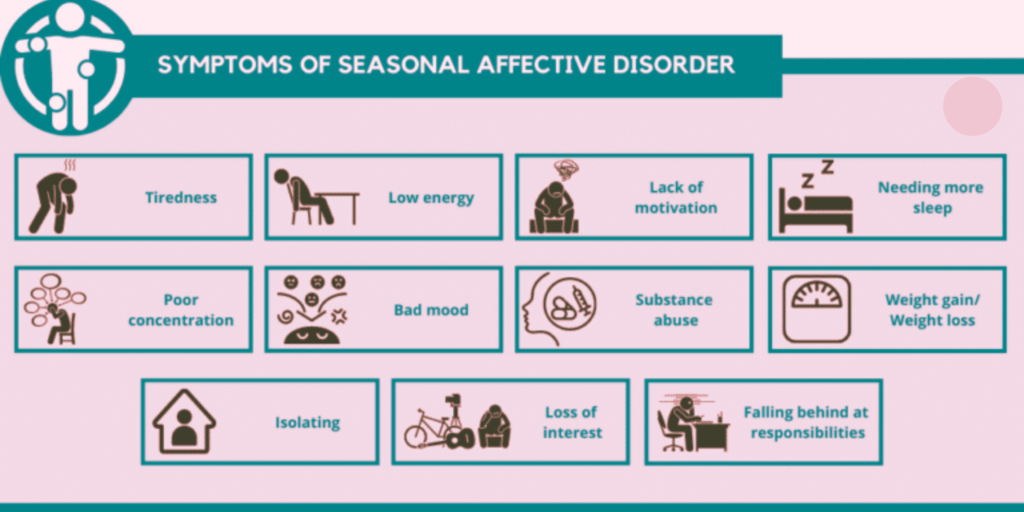Winter Depression: How to Overcome Seasonal Depression in Winter

Winter Depression and Mental Health, commonly known as seasonal affective disorder (SAD), affects many people when the colder months approach. As daylight hours decrease, people may experience a drop in mood, lack of energy, and even depressive symptoms. If you’re feeling the effects of the January blues, don’t worry—this article will guide you through proven strategies to overcome seasonal depression and help you feel more energized, positive, and in control during the winter season.
What Causes Winter Depression?
Seasonal affective disorder (SAD) is primarily caused by reduced exposure to sunlight during the winter months. This lack of sunlight can disrupt your body’s natural circadian rhythms, lower serotonin levels, and increase melatonin production—leading to feelings of sadness, low energy, and decreased motivation.
Key Contributing Factors to Winter Depression and Its Impact on Mental Health
- Reduced Daylight:
Shorter days and longer nights mean less sunlight, which leads to decreased vitamin D absorption and affects mood regulation. - Cold Weather:
The chillier temperatures often discourage outdoor activities and exercise, both of which are crucial for elevating mood and maintaining physical health. - Social Isolation:
With the colder weather, socializing tends to decrease, which can result in feelings of loneliness and isolation, worsening the effects of depression. - Unhealthy Eating Habits:
During the winter months, many people turn to comfort foods high in sugar and refined carbohydrates, which can negatively affect both energy and mood.
- Reduced Daylight:
Ways to Combat Winter Depression
If you’re looking for effective strategies to combat seasonal depression, lifestyle changes and treatments can make a significant difference. Here are some actionable tips that can help manage and overcome SAD:
Increase Exposure to Natural Light
One of the primary causes of winter depression and its impact on mental health is the lack of sunlight. To counter this, aim to spend more time outdoors, particularly during the sunniest hours of the day.If you live in an area with limited sunlight, light therapy lamps can be incredibly helpful. These lamps simulate sunlight and can help regulate your circadian rhythm, improving mood and overall well-being.
Additionally, make your indoor environment brighter by keeping curtains open and rearranging furniture to allow more natural light into your living space. Even small changes can have a positive impact.
Adopt a Regular Exercise Routine
Physical activity is one of the most effective ways to combat seasonal depression. Regular exercise releases endorphins—your body’s natural mood boosters—and helps elevate your energy levels. Even light activities like walking or practicing yoga can provide significant benefits. If possible, engage in group exercises such as dance classes or team sports, which add a social component and help reduce isolation.
Exercise not only improves physical health but also promotes mental well-being by boosting serotonin production, helping you feel better in both body and mind.
Adjust Your Diet
Your diet can play a crucial role in managing winter depression. Incorporate foods that are rich in tryptophan, such as bananas, nuts, and eggs. Tryptophan is essential for serotonin production, which is crucial for regulating mood. Additionally, ensure you get enough vitamin D, either through sun exposure, supplements, or foods like fatty fish, eggs, and fortified dairy products.
It’s also important to reduce your intake of refined sugars and simple carbohydrates, as these can cause energy spikes followed by crashes, potentially worsening symptoms of SAD. Opt for whole grains, lean proteins, and plenty of vegetables to maintain stable energy levels throughout the day.
Maintain a Structured Routine
Having a consistent routine can greatly benefit those with seasonal depression. Try to wake up, eat, and go to bed at the same time each day to help your body adjust to the seasonal changes. Regularity helps minimize feelings of fatigue and lethargy, which are common during the winter months.
Additionally, setting daily goals—even small ones—can help maintain a sense of purpose and motivation. This structure can reduce the negative effects of SAD and help you stay engaged with your day-to-day life.
Practice Relaxation Techniques
Mindfulness practices such as meditation, deep breathing exercises, and yoga can significantly reduce stress and improve emotional well-being. These techniques help clear the mind and provide a calming effect that is essential for managing seasonal depression.
In addition, incorporating activities like keeping a gratitude journal, listening to relaxing music, or indulging in self-care can help boost mental health during the colder months.
Engage in Social Activities
Maintaining social connections is critical for managing winter depression. Engaging in social activities, such as gatherings with friends, attending support groups, or participating in community events, can help combat isolation and improve mood.
If leaving your home feels difficult, consider engaging in online interactions, such as video calls or participating in virtual communities, to keep connected with others and maintain emotional well-being.
Professional Treatments for Winter Depression
For those who experience severe and persistent symptoms of seasonal depression, seeking professional help is essential. Cognitive-behavioral therapy (CBT) has been proven to be effective in treating SAD by helping individuals develop coping strategies and change negative thought patterns.
In some cases, antidepressant medications may be recommended by healthcare providers to help regulate mood. Additionally, light therapy (phototherapy) is another proven treatment for SAD. It involves using a light therapy box that simulates natural sunlight, which can improve mood by balancing brain neurotransmitters.
Additional Strategies to Overcome Seasonal Depression and Improve Mental Health
Travel to Sunny Locations:
If possible, consider spending time in locations that receive more sunlight during the winter months. A change of scenery and exposure to natural sunlight can have a profound impact on mood.
Adopt Hobbies You Enjoy:
Engaging in enjoyable activities like painting, reading, or gardening can help keep your mind occupied and engaged. These hobbies provide a sense of purpose and relaxation, reducing the negative impact of winter depression.
Limit Alcohol and Caffeine:
Excessive alcohol and caffeine consumption can interfere with sleep and exacerbate seasonal depression symptoms. Try to limit your intake of these substances to improve your overall mental health.
Challenges of CrossFit for the Body
CrossFit is a high-intensity fitness regimen that has gained significant popularity for its dynamic workouts and ability to improve strength, stamina, and overall fitness. However, like any physical activity, CrossFit comes with its own set of challenges that can impact the body.
Risk of Injuries
Although CrossFit offers numerous health benefits, the risk of injury is a valid concern. A study published in the Orthopaedic Journal of Sports Medicine in 2014 found that the injury rate among CrossFit practitioners is higher than in some other forms of exercise, particularly for beginners. The high-load, technical movements like deadlifts and Olympic lifts can be risky if not performed with proper form, which makes the guidance of an experienced trainer crucial to avoid accidents.
Physical and Mental Demand
CrossFit is notorious for being physically and mentally demanding. The workouts are designed to push participants to their limits, which can be especially challenging for beginners or individuals who are not accustomed to high-intensity exercise. Adequate recovery, a well-structured training program, and listening to your body are essential to avoid burnout and overtraining.
Importance of Proper Technique
The key to success in CrossFit is mastering the technique of complex movements like the snatch, clean, and jerk. Performing these exercises with improper form increases the risk of injury. Without proper supervision or coaching, the chances of executing these movements incorrectly significantly rise. Ensuring you have access to skilled trainers and consistently working on your technique can minimize these risks.

Treatments and Professional Help
If symptoms are severe and persistent, seeking professional support is crucial. Cognitive-behavioral therapy (CBT) and, in some cases, antidepressant medications may be recommended by specialists for winter depression treatment.
Additionally, light therapy (phototherapy) is a highly effective approach for many individuals, simulating the effects of natural sunlight and helping to balance brain neurotransmitters.
Other Strategies to Overcome Seasonal Depression
Travel to sunny locations: If possible, spending time in places with more sunlight can be beneficial.
Adopt enjoyable hobbies: Painting, reading, gardening, and crafts can help keep the mind active and engaged.
Avoid excessive alcohol and caffeine consumption: Both can affect sleep and worsen seasonal depression symptoms.
Winter depression can be challenging, but with the right strategies, it is possible to reduce its impact and maintain well-being during the colder months. From increasing sunlight exposure to maintaining a healthy routine, these approaches are essential for coping with this period.
If you are looking for additional solutions, check out this product that can help combat seasonal depression and improve your quality of life! Additionally, if you’re interested in alternative health options, consider exploring natural alternatives for hearing impairments, tinnitus remedies, and help with vertigo to enhance overall well-being.
Apply these tips in your daily life and enjoy winter with more ease and energy!
Additional Strategies to Overcome Seasonal Depression
Travel to Sunny Locations:
If possible, consider spending time in locations that receive more sunlight during the winter months. A change of scenery and exposure to natural sunlight can have a profound impact on mood.
Adopt Hobbies You Enjoy:
Engaging in enjoyable activities like painting, reading, or gardening can help keep your mind occupied and engaged. These hobbies provide a sense of purpose and relaxation, reducing the negative impact of winter depression.
Limit Alcohol and Caffeine:
Excessive alcohol and caffeine consumption can interfere with sleep and exacerbate seasonal depression symptoms. Try to limit your intake of these substances to improve your overall mental health.
Managing Winter Depression with Effective Strategies
Winter depression, also known as seasonal affective disorder (SAD), can be challenging. However, with the right strategies, it is possible to minimize its impact and maintain well-being during the colder months. By increasing sunlight exposure, maintaining a regular exercise routine, adjusting your diet, and staying socially engaged, you can successfully manage SAD and feel better throughout the winter season.
If you’re looking for additional solutions, consider exploring products designed to combat seasonal depression and improve your quality of life. Whether through professional treatments or lifestyle changes, there are many effective ways to tackle winter depression and enjoy the winter months with more ease and energy.
Sources:
National Institute of Mental Health (NIMH) – Seasonal Affective Disorder: https://www.nimh.nih.gov
Mayo Clinic – Seasonal Affective Disorder Treatment: https://www.mayoclinic.org
Harvard Medical School – Light Therapy for Depression: https://www.health.harvard.edu
American Psychological Association – Managing Seasonal Depression: https://www.apa.org
Cleveland Clinic – Seasonal Affective Disorder (SAD): https://my.clevelandclinic.org
World Health Organization (WHO) – Mental Health and Seasonal Changes: https://www.who.int
